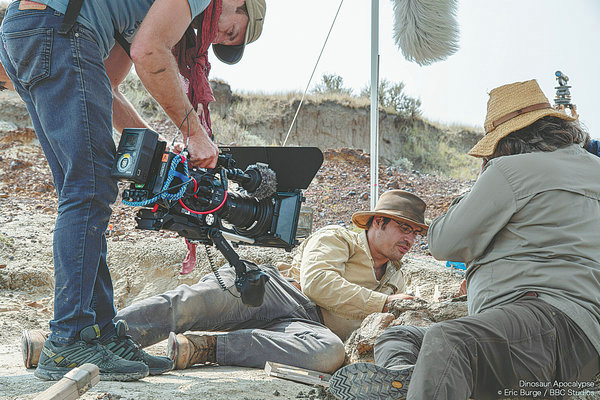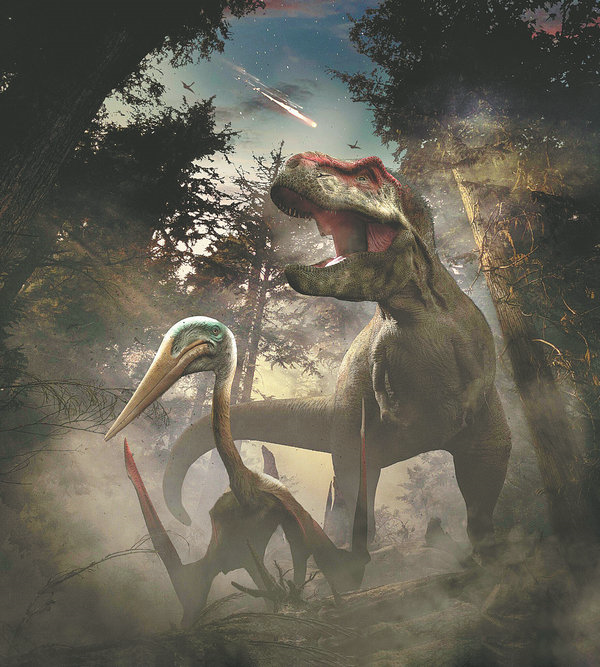

"Now people know what to look for; it's given them a template for research at other sites. There might be other Tanises out there that haven't been discovered yet," Thomas says.
Tanis has been kept under wraps for many years, until its full wonder was explained in the film.
"The meteorite impact triggered what is thought to be a so-called impact winter, with wildfires and then very cold conditions, and no sunshine for years, so no plants grew, which killed off the herbivores, which, in turn, killed off the carnivores," Thomas explains.
"It's thought 75 percent of species on Earth died out, including everything over 25 kilograms, so it changed the face of the planet entirely."
Much of the impact of the meteorite was down to the coincidence of where it landed, in a shallow sea, with sulfurous rocks.
"Had it landed a few minutes later, in a deep ocean because of how the world was turning, or on granite, the impact would have been very different, but the rocks created toxic gases of the very worst kind," Thomas explains.

The film features CGI re-creations of what may have happened, and as it is produced by a science unit, accuracy and transparency are absolute priorities for program makers.
"It's as accurate as we can be-everything we do is based as much as possible on scientific fact," Thomas explains. "If we're not sure, we say we're not sure, and we never say anything we don't know to be true.
"We had four scientific advisers who saw everything through. Everything at every stage of the process has been checked to three sources. There's nothing we're saying that hasn't had a scientist say that we can say it.
"If there is something we can't know for sure, we will say it's speculation based on the best science that we have, but people should never feel the wool is being pulled over their eyes."
In a time of so much global division, the shared history of the dinosaurs and the earliest development of life on the planet is something that binds countries and broadcasters around the world together, and Thomas says this global effort and audience is something that inspires her team's work.
"No matter how big or small your budget, you want to make the best program you can, because this is such an important story about one day that changed the world," she says.
"People all around the world are fascinated by dinosaurs, and always will be, so you want to get the story out to the biggest audience possible. To be able to tell this story in such detail, to such a big audience, is an absolute thrill."